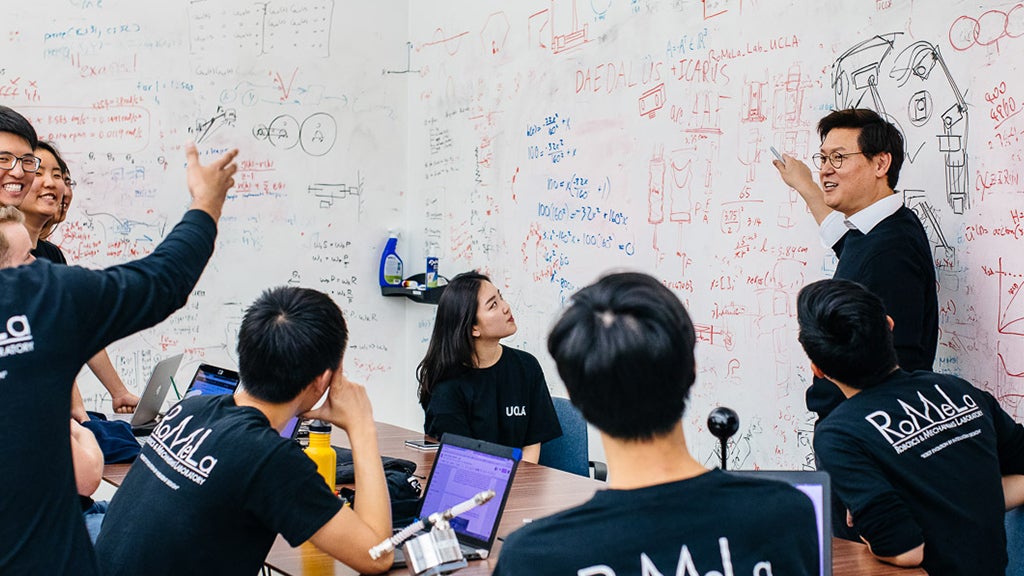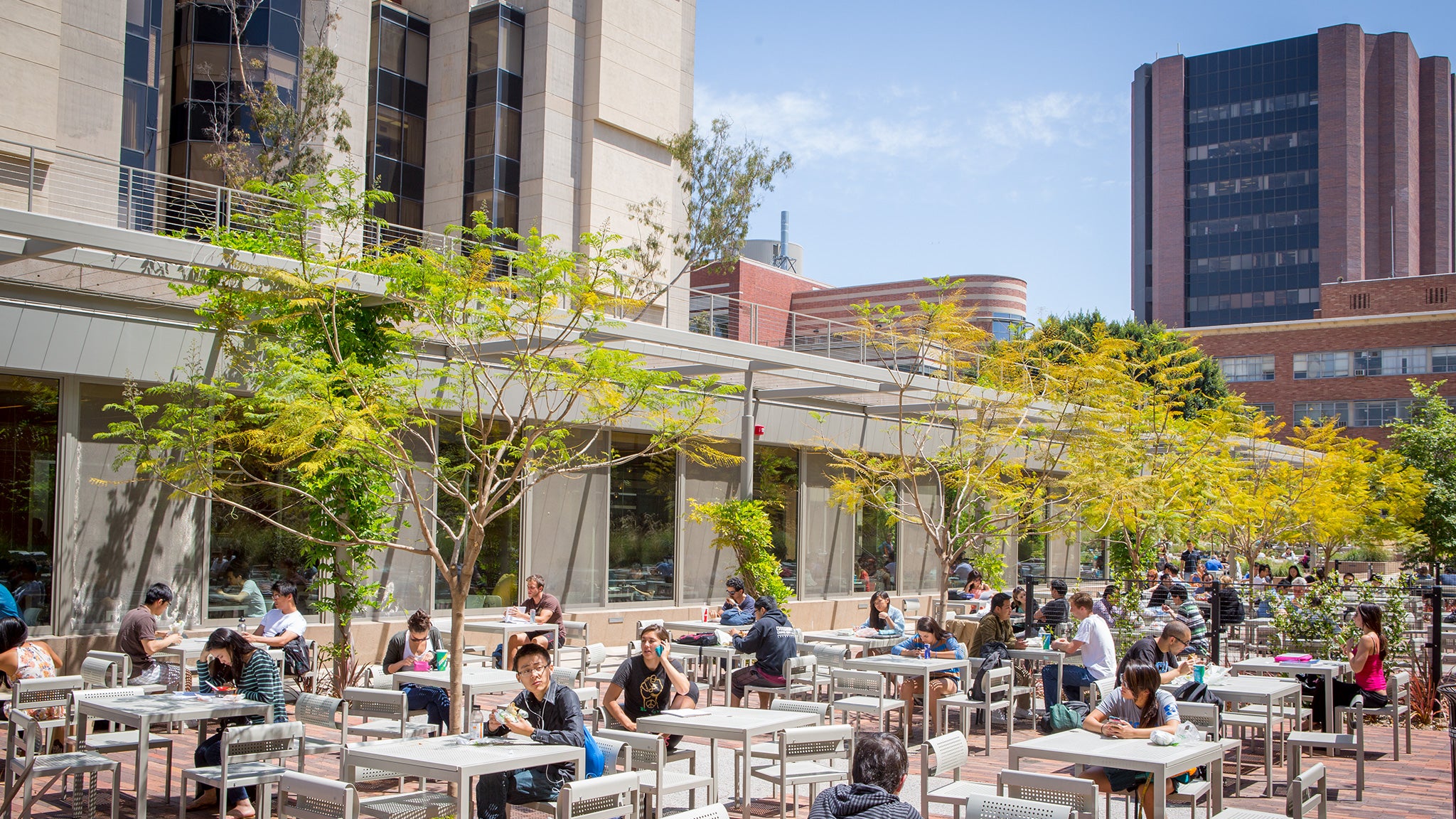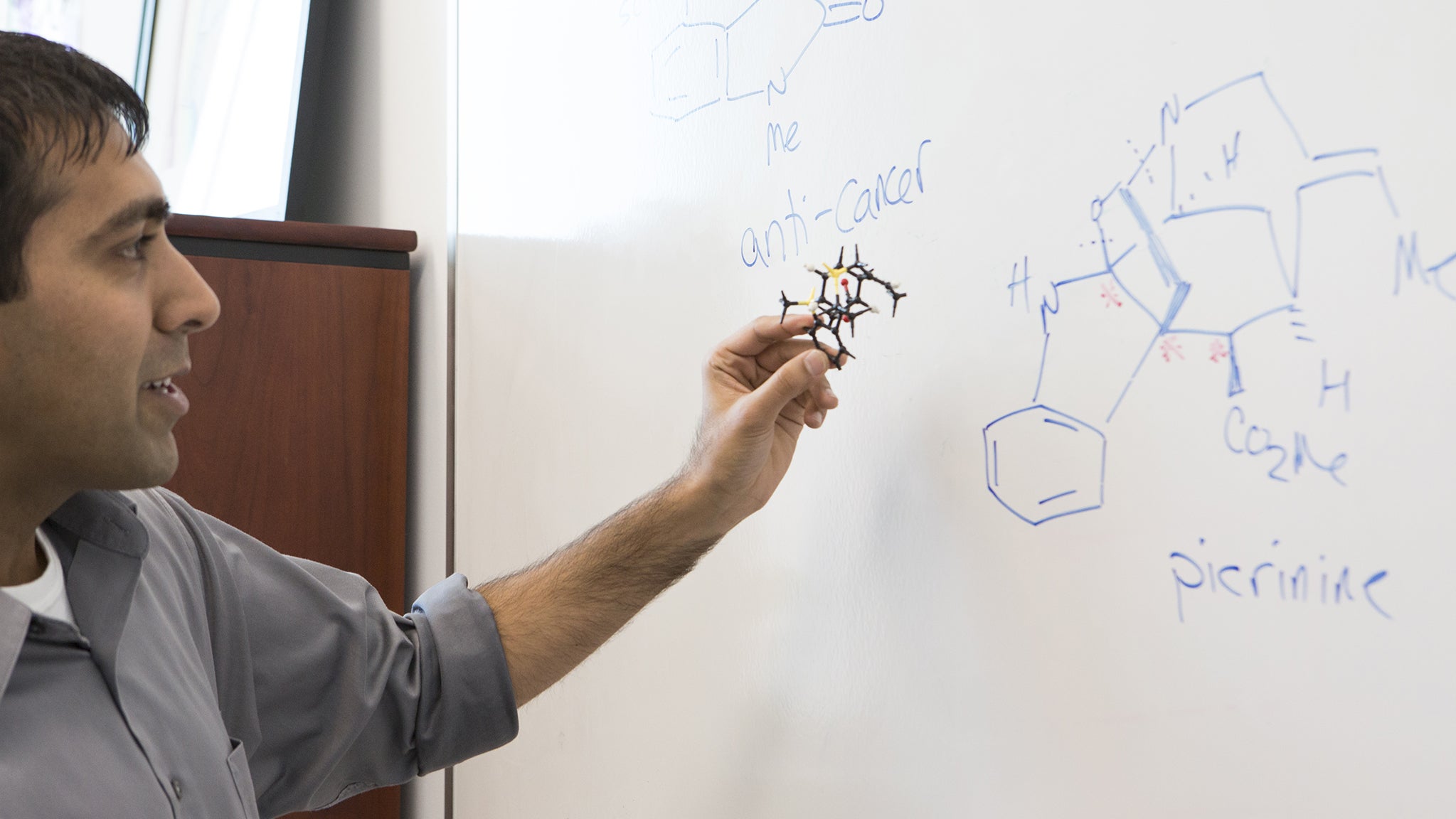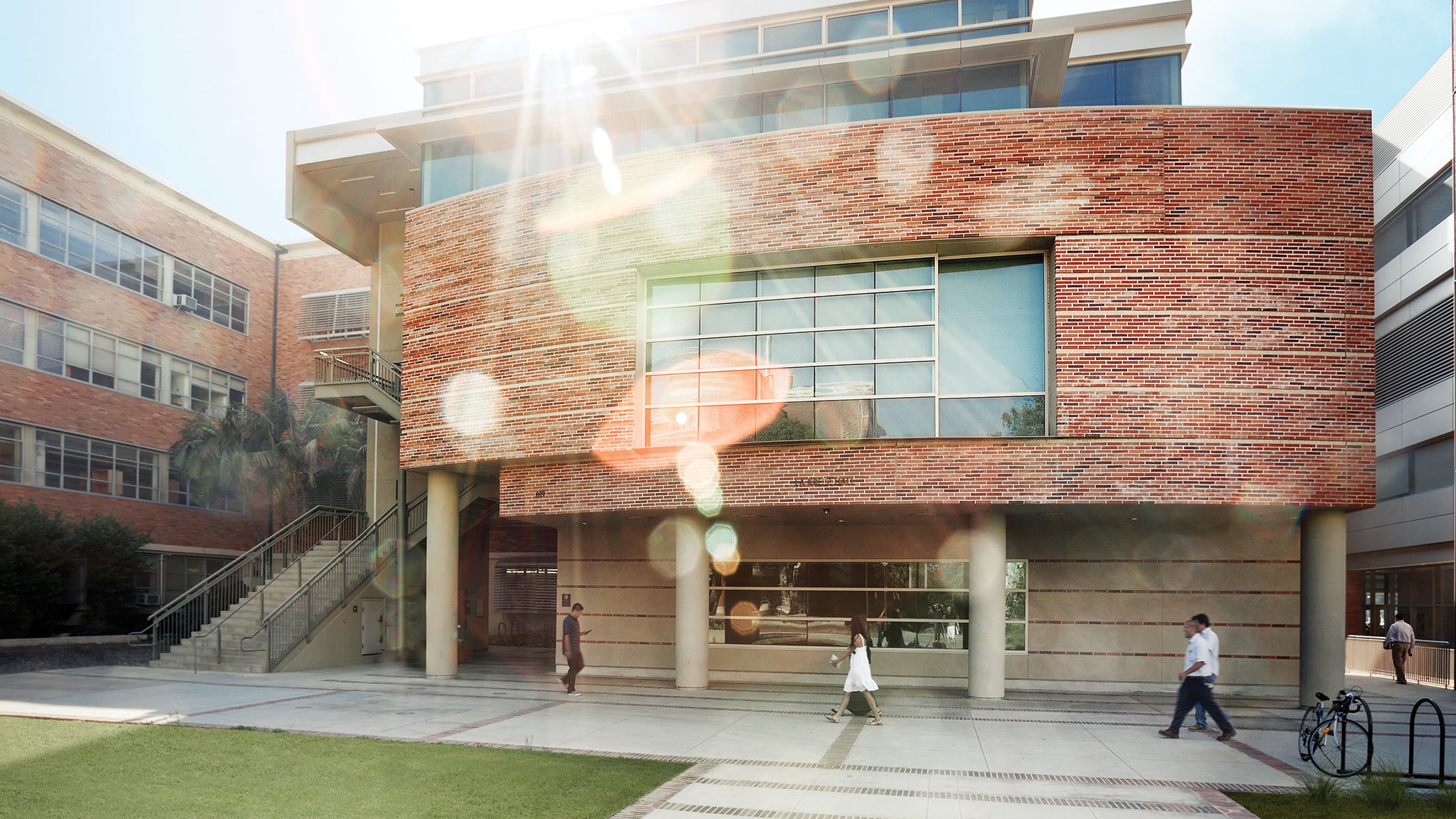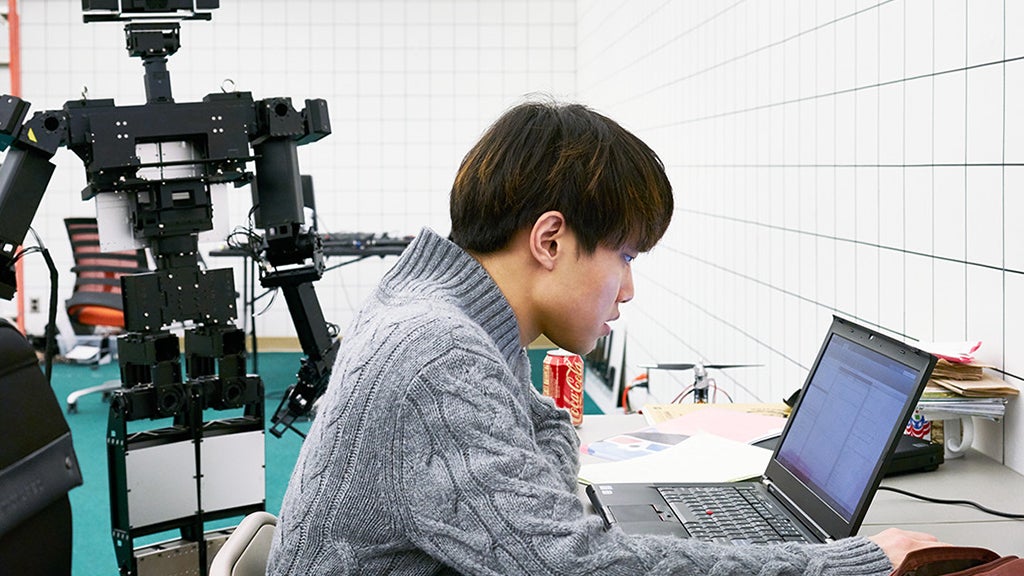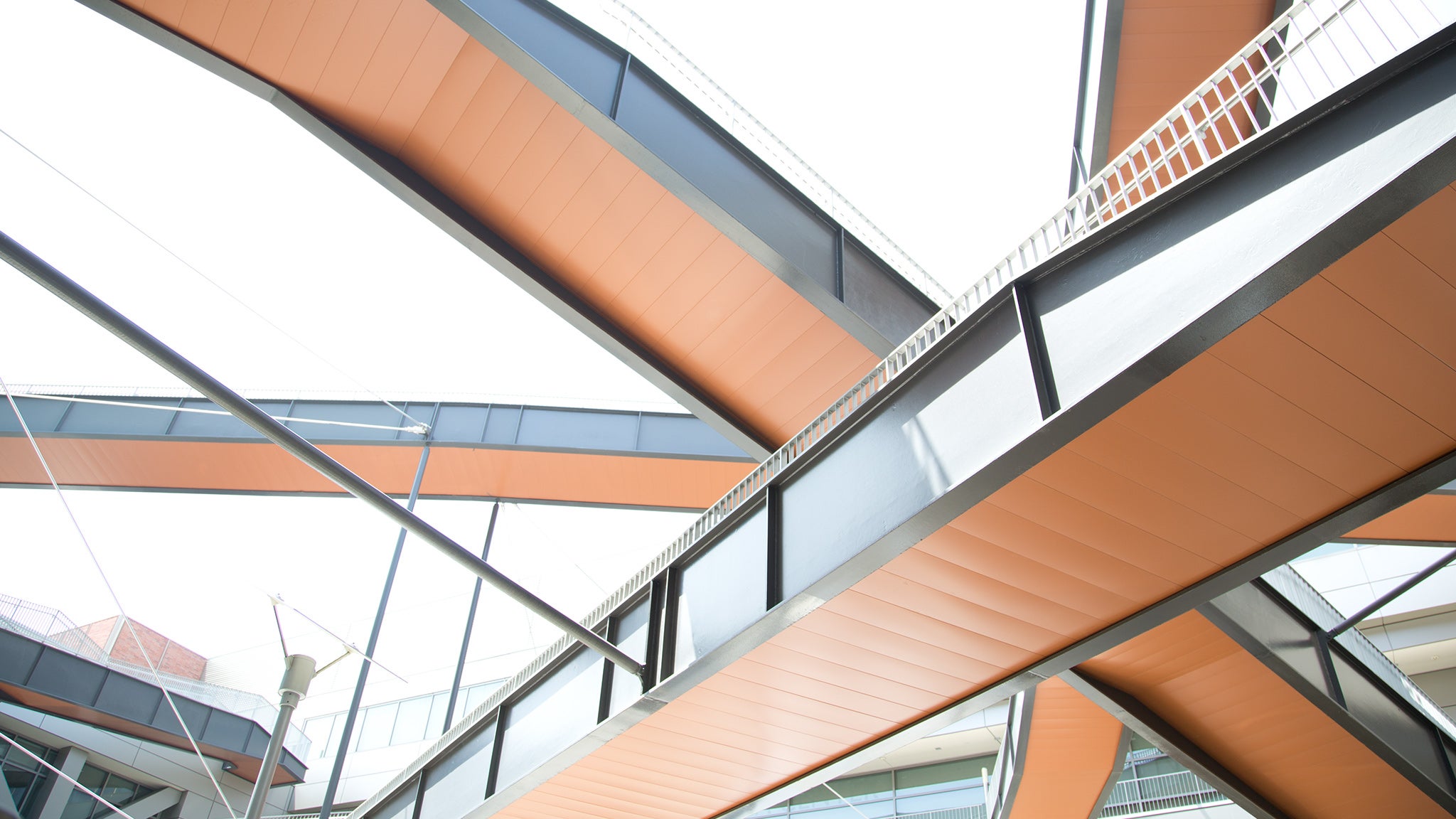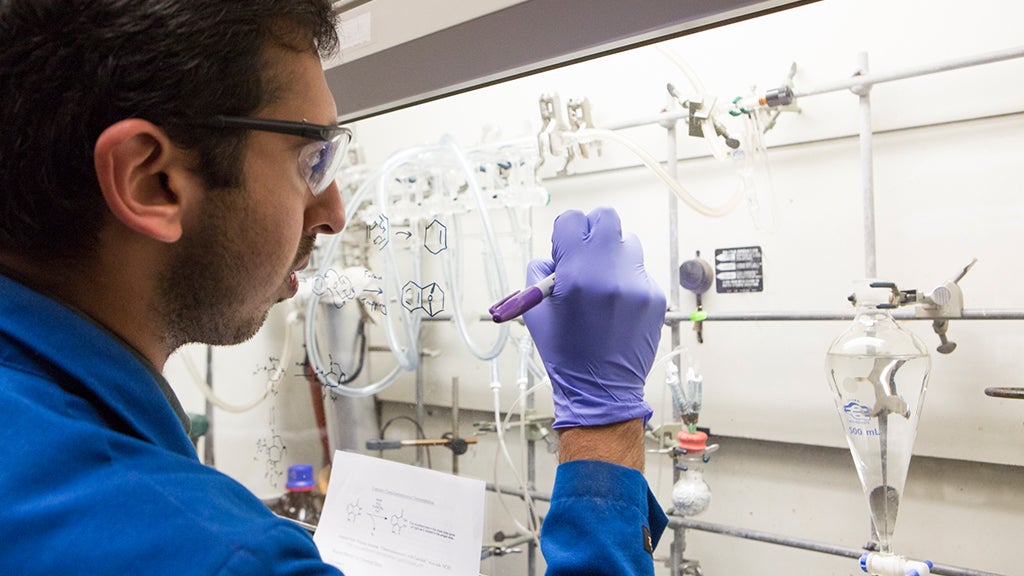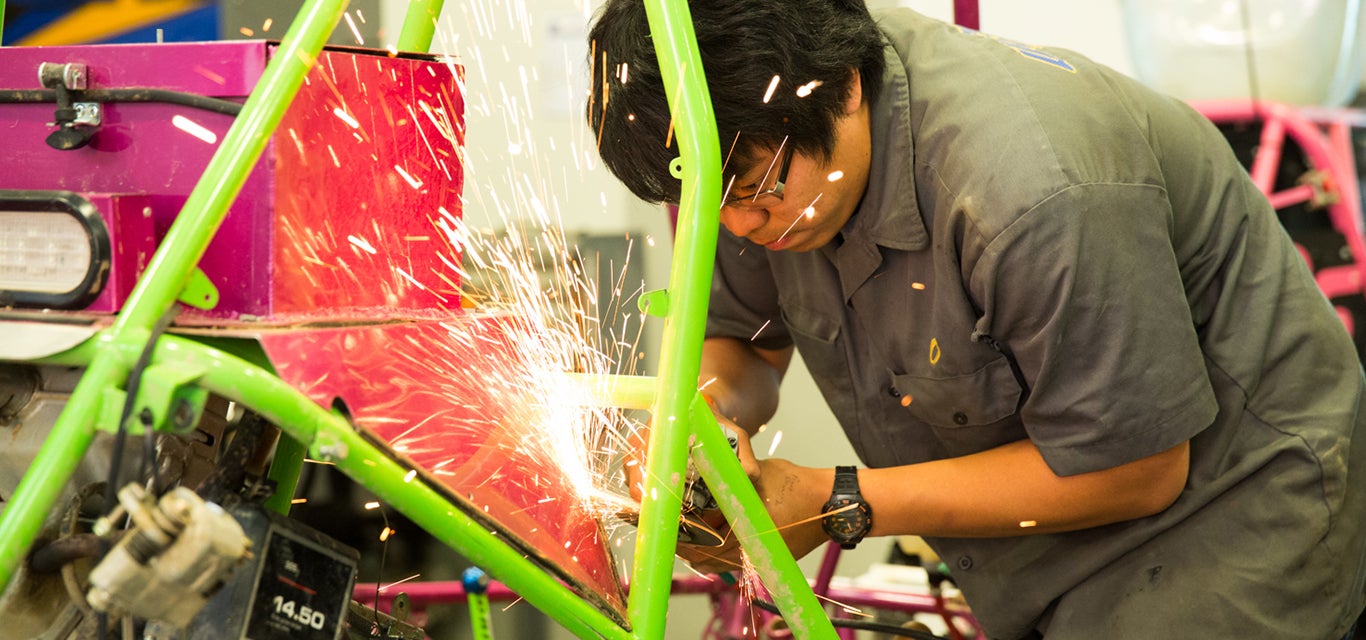
If you have a talent for numbers or like to take things apart — either with your hands or your imagination — this may be your field. Majors in physical sciences, math or engineering could give you the opportunity to explore our world, solve infrastructure and technology problems and improve human lives.
Academic Majors and Minors
Here are some of the majors and minors available in this field of study:
Most Popular Majors
- Applied Mathematics
- Biochemistry
- Computer Science
- Electrical Engineering
- Mathematics
- Mechanical Engineering
- Statistics
Trending Majors
- Aerospace Engineering
- Astrophysics
- Chemical Engineering
- Climate Science
- Financial/Actuarial Mathematics
- Geology
- Mathematics for Teaching
Intriguing Majors
- Accounting
- Bioinformatics
- Earth and Environmental Science
- Geophysics
- Planetary Physics
- Teaching Secondary Mathematics
in the world for mathematics
in the world for computer science and engineering
Noteworthy Faculty
Here are just a few of the many professors in this field of study who’ve had a remarkable impact in their area of expertise.

Andrea Bertozzi
Bertozzi thinks of math as a creative medium that can help solve real-world problems. One of her many projects includes developing algorithms for the deployment of robotic bees to help offset the declining bee population.
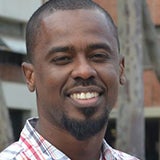
Henry V. Burton
Fascinated by structural/earthquake engineering and community resilience, Burton has received three National Science Foundation grants and one National Science CAREER Award to support his research.
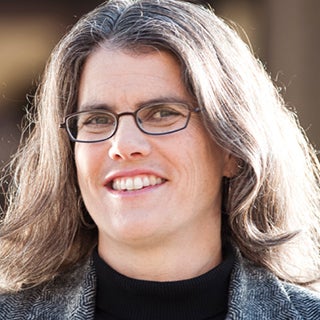
Andrea Ghez
Ghez was awarded the Nobel Prize in 2020 in physics for her groundbreaking research on supermassive black holes, which has redefined our understanding of how galaxies form.
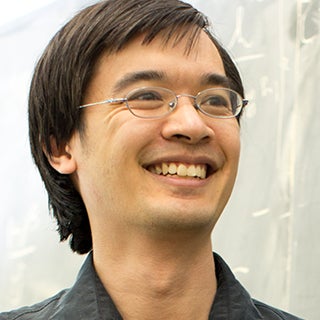
Terence Tao
Adept at math from an early age, Tao began attending university-level math courses at the age of nine. In 2006, he was a MacArthur Fellow and winner of the prestigious Fields Medal. He won the Breakthrough Prize in Mathematics in 2014.
Notable Alumni
Bruins have achieved great heights in all walks of life — health, sports, entertainment, public service, science and technology, and arts and letters. Here are some alumni in this field of study who have had a noticeable impact on the world.
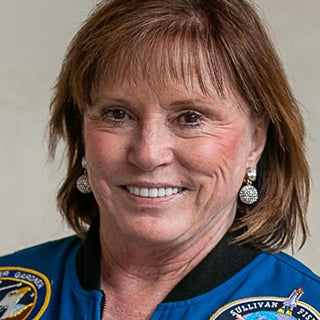
Anna Lee Fisher
Chemist, medical doctor and astronaut
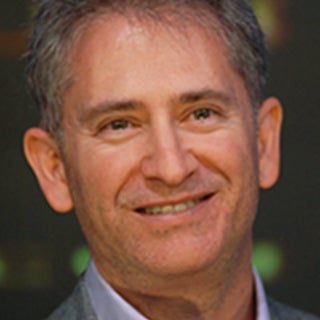
Michael Morhaime
Co-founder of Blizzard Entertainment
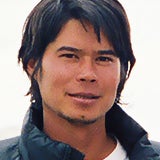
Michael Murphy
Professor of geology, structure and tectonics; Himalayan fault system field researcher
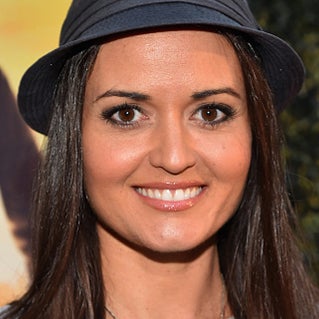
Danica McKellar
Co-author of the Chayes-McKellar-Winn Theorem, actress and New York Times best-selling author
Growth Careers in the Field
Here are a few examples of areas where this exciting field of study is growing and developing.
Statisticians
More widespread use of statistical analysis to make informed business, healthcare and policy decisions and the increase in available data on the internet for analysis are projected to result in 31% more jobs by 2028.
Environmental Scientists and Specialists
Due to increased public concern for the environment, this field is expected to grow 8% by 2028. Scientists and specialists will be sought out by state and local governments and in industries that hire consultants to analyze environmental issues and develop solutions.
Information Security Analysts
With cyberattacks on the rise, this field is projected to grow 32% by 2028. Companies will be looking for innovative solutions to prevent hackers from stealing critical information or creating computer networks issues.
Related Careers
Below, find examples of additional careers related to this field of study:
- Academia and Research
- Actuary
- Agile Coach
- Agriculture
- Data Architect
- Bioengineer
- Chemical, Biomedical and Pharmaceutical
- Computer Programmer
- Horticulture
- Forestry and Food
- Mechanical Engineering and Manufacturing
- Physical and Mathematical Sciences
- Enterprise Architect
- Environmental Engineers
- Geoscientists
- Operations Research Analyst
- Personal Financial Advisor
- Security Architect
- Software Developer
- Software Engineer
- Systems Analyst
Testimonials

My friends and I will sometimes stay up for hours discussing the dielectric and semi-conductive characteristics of materials and how those properties affect and help us understand everything in our physical world. Trust me, if you take the course Introduction to Materials Science Engineering, your mind will be blown.
Institutes and Research
UCLA offers many resources for deepening your knowledge in your chosen field, including hundreds of research centers, institutes and labs that encourage collaboration across disciplines. Here are a few of the many options in this area:
California NanoSystems Institute
CNSI is an integrated research facility with a goal to encourage university collaboration with industry leaders and enable the rapid commercialization of discoveries in nanoscience and nanotechnology.
UCLA Curtis Center
The Philip C. Curtis Jr. Center for Mathematics and Teaching is dedicated to developing and supporting high-quality K–16 mathematics and teacher-preparation programs.
Institute for Pure & Applied Mathematics
IPAM’s goal is to spark interdisciplinary collaboration by bringing together researchers from different disciplines or from different areas of mathematics.
UCLA Institute for Planets and Exoplanets (iPLEX)
iPLEX is an academic consortium that bridges the interests of UCLA faculty, researchers and students of Earth, Planetary and Space Sciences; Physics and Astronomy; and Atmospheric and Oceanic Sciences with interdisciplinary collaboration.

